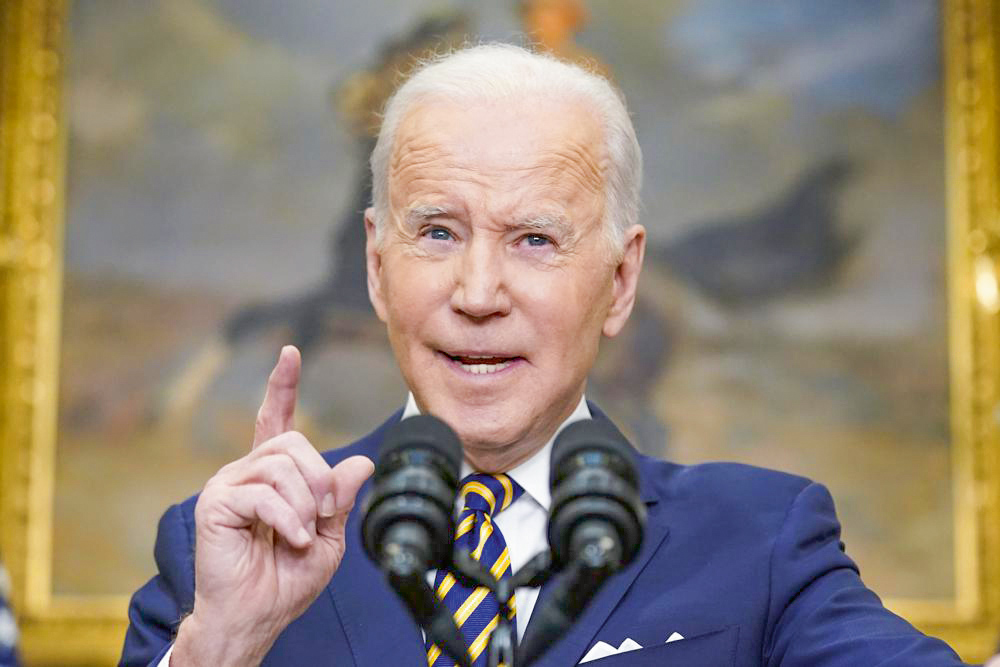Edited by; TJVNews.com
Now that the US has banned the importation of all Russian oil, gas and coal products in the wake of the bloody war that the “Big Bear” and its leader Vladimir Putin has launched against neighboring Ukraine, the question is not how the US will meet its energy needs, but the question is how the European nations will meet their energy needs.
Last year, the United States relied on Russia for about 8% of its energy imports, and only 3% of that is crude oil. While prices may be going up at the pump, according to the U.S. Energy Information Administration, America get most of its crude imports from Canada and Mexico.
Russia, however, supplies 40% of Europe’s gas and a quarter of its oil. Clearly, Europe needs a viable solution to their energy needs that does not include Russia.
According to a Reuters report of January 11th, the United States had nixed the idea of a subsea pipeline designed to supply Europe with natural gas from the eastern Mediterranean, Greek government sources said. The report indicated that the former Trump administration had thrown their support behind this project.
Reuters reported that the Biden administration, let its concerns be known recently, in a note sent to Greece, another source said.
Competing claims over gas reserves in the eastern Mediterranean are a point of tension between Turkey and ethnically-split Cyprus. Turkey opposes the pipeline project.
Greece, Cyprus and Israel have approved an agreement for the EastMed pipeline, which has been in planning for several years. The countries had aimed to reach a final investment decision this year and have the 6 billion euro ($6.82 billion) plan completed by 2025 to help Europe diversify its energy resources, as was reported by Reuters.
One source told Reuters that “the American side expressed to the Greek side reservations as to the rationale of the EastMed pipeline, and raised issues of its economic viability and environmental issues.”
Greece, Israel and Cypris have supported the project, despite repeated concerns about the project’s financial viability, according to the Reuters report.
Reports of the United States having reservations over the pipeline were first published in Greek media, according to Reuters.
Touted as an alternative to help ease Europe’s dependence on Russian gas, the 1,900-km (1,180-mile) project was expected to initially carry 10 billion cubic meters of gas a year to Europe.
Another report indicated that the Biden administration’s willingness to abandon support for the project was ostensibly justified by the need to focus on clean energy sources and that this project did not align with Europe’s green energy plans.
The report indicated that “if the project did not fit the future European green energy plans, presumably this too was a European decision. After all, both Greece and Cyprus are members of the European Union. But as it stands now, this announcement will be perceived as an attempt by Washington at strong-arming the parties.”
In a March 1st article on the JNS web site by former Israeli Ambassador to the United Nations, Dore Gold wrote: “The crisis in Ukraine has illustrated just how important the diversification of Europe’s gas sources has become, and the urgency of finding alternatives to Russian gas, if only to reduce Moscow’s leverage over Europe and the NATO alliance.”
He added that, “despite the Biden administration’s postponement, for reasons that are not entirely clear, of Israel’s gas pipeline to Europe, Israeli gas is still used for its Middle Eastern partners, particularly Egypt and Jordan.
For the last decade, Iran has been seeking to export its gas to Iraq and even Jordan, thereby extending its influence to Israel’s east.
With the anticipated improvement of Israeli ties to Turkey, Ankara could emerge as an export hub for Israeli gas.
Thus, in the aftermath of the war in Ukraine, there are multiple reasons why the work on the EastMed pipeline must be resumed as soon as possible, along with gas exploration in the Eastern Mediterranean. Moreover, increasing the supply of gas to the West will also help drive down its price, thereby undermining Russia’s ability to fund its war machine in the future.”
On Thursday, the head of one of Israel’s biggest energy companies said that in the short term Europe will remain dependent on Russian natural gas supplies, despite the geopolitical complications created by the Russian invasion of Ukraine, according to a report on the Algemeiner web site.
Speaking to the Israeli media, Yossi Abu, the CEO of New-Med Energy said that in order for Europe to find alternative sources to Russian natural gas, “we are taking about much longer process than two to three years.”




